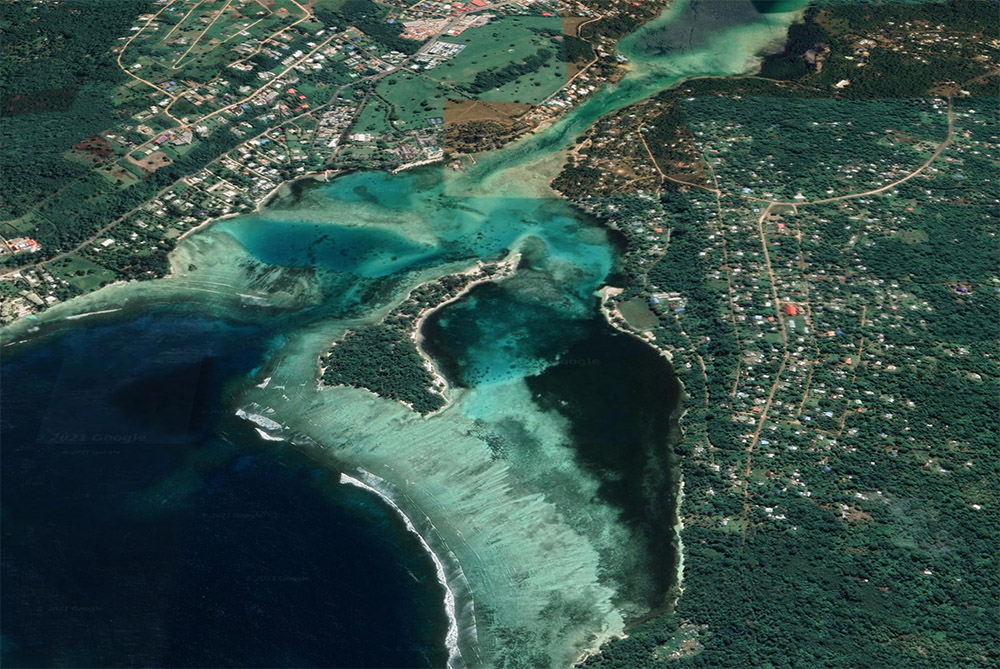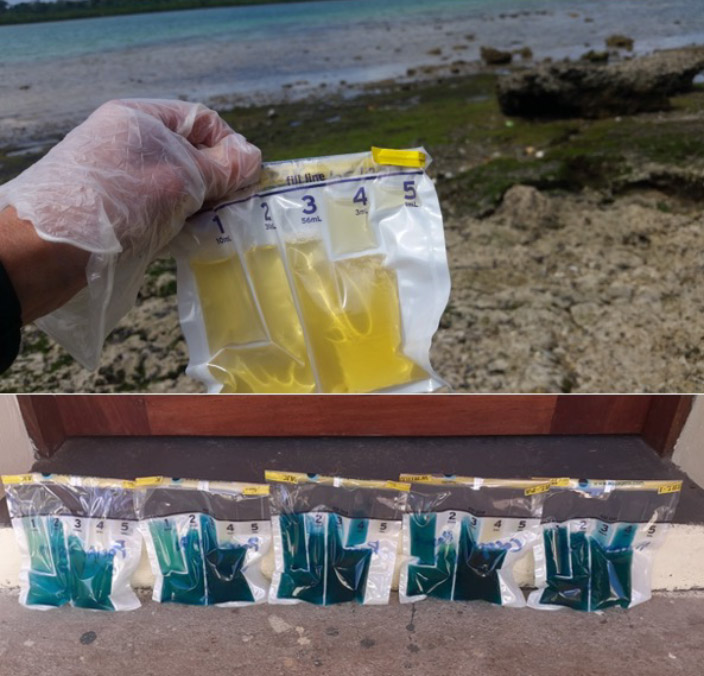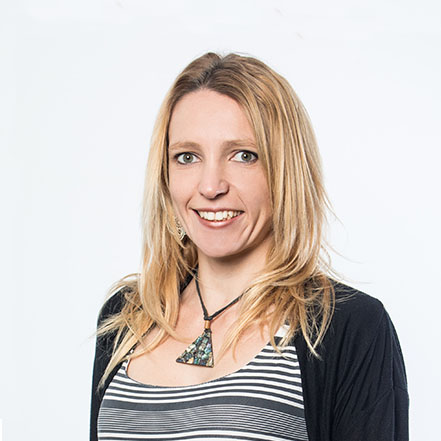
Coastal waters are used for recreational activities such as swimming or fishing. In the South Pacific Islands, most of the population and infrastructures are concentrated near the coast. Wastewater discharge are often not well regulated and released in the coastal waters. Growing population and effect of climate change might compromised the water quality of coastal lagoon if no management plans are established.
We wrote this paper to inform about the current water quality of Erakor lagoon, on Efate, Vanuatu, and potential risks associated with future development and climate variability. This paper is under review for a special issue “Ecosystem resilience and human impact in the Pacific Oceanscape: current status and future directions” at the Marine Pollution Bulletin Journal.
In Small Island Developing States (SIDSSIDS Small Island Developing States are a distinct group of 38 UN Member States and 20 Non-UN Members/Associate Members of United Nations regional commissions that face unique social, economic and environmental vulnerabilities.), water pollution is not monitored frequently enough to fully understand the processes, impacts and solutions. This study shows a high microbial contamination existing in a popular coastal lagoon and a poor flushing of the full water system. The contamination was detected by Escherichia coli often used as an indicator of faecal pollution such as wastewater discharge and also other more pathogenic organisms which are a danger for human health. The water quality of the lagoon is also very important to maintain a healthy ecosystem including fishes and coral reef.
Sample data collection was led from May 2019 to June 2020 and was completed by numerical modelling to estimate the flushing time of the lagoon and influence of climate variability such as waves, water levels and wind. The results showed a poor flushing time overall but a decrease in the flushing time with the presence of waves and wind especially in Vila Bay. Sea level rise resulted in an increase in residence time downstream of the lagoon, with a decrease upstream and in Vila.
Based on these results, guidelines are recommended including the need for real time monitoring over a couple of years and identification of higher risks areas to prioritise decisions around wastewater management. This funding is really important for the local communities and further research is needed to improve the management of the coastal waters, and to study the impact of the climate change of this lagoon.
This case study can be transferrable to many other Pacific Islands facing the same issues of contaminated coastal waters and development. Future steps for this research includes the installation of a permanent water quality monitoring station, increasing the capacity building of the local government and community, and the study of the climate risks on the coastal waters.

Above: Water quality sampling equipment - easy to use and deploy.
Publication
Faivre, G., Sami, E., Mackey, B., Tomlinson, R., Zhang, H., Kumar Kotrae, K., Aimbie, J., Maniele, M., Vieirada, G., Rand, E. (2021). Water circulation and impact on water quality in the southwest of Efate Island, Vanuatu. Marine Pollution Bulletin, 173, 112938. doi: 10.1016/j.marpolbul.2021.112938
About the lead author
Gaëlle Faivre
PhD scholar. Assisting with the EcoAdapt project on water quality in Port Vila, Vanuatu.
Request a copy of the article
If the download article link below doesn’t work, or leads to a page that requests payment, please click the link to the author profile above and request a copy directly and they will be happy to assist. Not all reviewed journal articles are published as ‘open access’, which are free to download.
